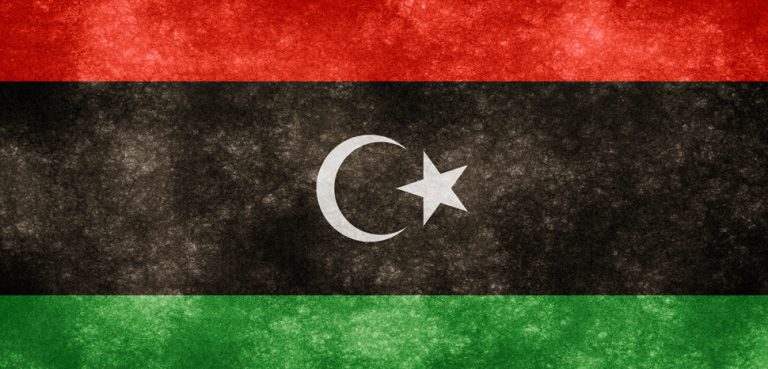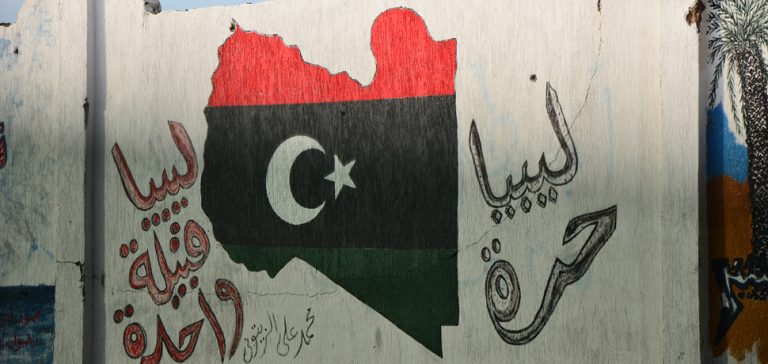The United States has called for the immediate withdrawal of Russian and Turkish forces from Libya. The request – which marks a turnaround with respect to the previous administration – was formulated by the head of the US mission to the United Nations, Richard Mills Jr., after the deadline passed in a UN ceasefire agreement on January 23rd.
“We call for all external parties, including Russia, Turkey, and the United Arab Emirates, to respect Libyan sovereignty and immediately cease all military intervention in Libya” Mills said during a UN Security Council meeting. “Under the October ceasefire agreement, we call on Turkey and Russia to immediately initiate the withdrawal of their forces from the country and of all foreign mercenaries, and the military delegates they recruited, financed, deployed and supported in Libya.”
The appeal marks renewed US concern involving a dossier that does not currently seem to be among the foreign policy priorities of the Joe Biden administration. But considering the wider strategic implications – stability in the Sahel, oil and gas supply, and NATO stability – that could quickly change.
Further complicating the dense array of international interests involved in the Libyan crisis – which initially saw Italy, France, the Emirates, and Egypt in the front row – two protagonists were added between the end of 2019 and the beginning of 2020, both of whom quickly took on a central role on the chessboard: Turkey and Russia. Ankara has in fact approved a military mission in support of Fayez al-Serraj’s Government of National Accord (GNA), sending soldiers and a few thousand mercenaries previously used in Syria to the country. Meanwhile, after discreetly supporting Khalifa Haftar for several years, Russia ramped up its presence in Libya alongside the Cyrenaica general.
Emblematic in this regard is the attitude of Turkey. The GNA defense minister recently announced that 1,300 Libyan soldiers had completed training provided by Ankara forces in specialized hubs in Libya. His words have provoked anger in Cyrenaica where the Turks are viewed as “Ottoman crusaders.”
The US request to “respect Libyan sovereignty” formulated by Ambassador Mills Jr. comes exactly one year after the Berlin summit, a conference in which supporters of the main factions in Libya had pledged to end interference in the country and work for a permanent ceasefire.
Since then, an armed truce has been in-place on the ground along the front line, between Sirte and the Al Jufra air base, which falls in the center of the country along the border between Tripolitania and Cyrenaica.
It is here that – as reported in recent days by CNN – the militias of General Khalifa Haftar have dug a trench over 70 kilometers long, a wall in the desert that does not suggest any intention on the part of external actors to demobilize and withdraw from the country.
On the political side, on January 21 the Libyan Political Dialogue Forum (LPDF) – an assembly with representatives from all over the country – voted in favor of the creation of a new interim executive authority, a sort of government of national unity to replace Fayez al-Serraj’s GNA and lead Libya toward general elections on December 24 later this year.
The selection mechanism provides that each of the regions that make up the country (Tripolitania, Cyrenaica, Fezzan) appoints a member of the presidential council, while the prime minister will be elected by the 75 members of the Forum, with a 70% threshold of votes.
The system has been designed in such a way as to ensure a balance between east and west Libya: if the presidency goes to Cyrenaica, the premiership should go to Tripolitan, and vice versa.
“The transitional government will be a temporary executive branch made up of Libyan patriots who want to share the responsibility of rebuilding their country rather than sharing the cake,” said UN envoy for Libya Stephanie Williams. Meanwhile, the Security Council has appointed Slovakian diplomat Jan Kubis as UN envoy to the country, a post vacant since last March when Ghassan Salame resigned due to stress, temporarily replaced by his deputy Williams.
Currently there are about 20,000 foreign soldiers and mercenaries present in Libya, according to the UN.
While Russia denies any responsibility for the presence of its own troops, last December Ankara extended the authorization for the deployment of its troops in Libya by 18 months, in violation of the ceasefire agreement. And at the same time as the US ambassador to the UN was making his appeal, the White House announced a suspension of the Trump administration’s 50 F-35 fighter sale to the United Arab Emirates. Both are signs suggesting a change in US attitudes toward the Libya dossier, which is particularly close to Italy’s heart.
An unstable Libya, prey to incessant tribal warfare, risks destabilizing the entire southern shore of the Mediterranean, fueling uncontrolled migratory flows and potential terrorist threats.
Over the past four years, external sponsors and non-state actors have taken advantage of the absence of the United States to pursue their own economic and strategic interests. But American involvement can prove essential to restoring balance in the country and preventing its collapse.
In the last few days, a phone call was arranged between the new US secretary of state, Anthony Blinken, and the Italian foreign minister, Luigi Di Maio, also in view of the Italian presidency of the G20.
“Rebuild and strengthen the lasting partnership between the United States and Italy.” This was the wish expressed by the US diplomat to his Italian counterpart.
The call comes after Blinken held his first press conference as secretary of state in the Biden administration on January 27. On that occasion, the top US diplomat highlighted some of the most relevant foreign policy issues for the US, including the freezing of an arms sale to Saudi Arabia and the United Arab Emirates and the possible re-entry of Washington into the agreement on the Iranian nuclear deal.
The second official contact between Joe Biden’s administration and the Italian government was in the telephone conversation between Lorenzo Guerini and Lloyd Austin, the new head of the Pentagon, on January 29.
As for Libya, Italy is trying to regain a role in the country through a series of meetings that have also seen envoys engaged with General Haftar, the last one taking place on January 21.
It is up to Rome and the international community to seize this opportunity in view of the crucial vote in December.



